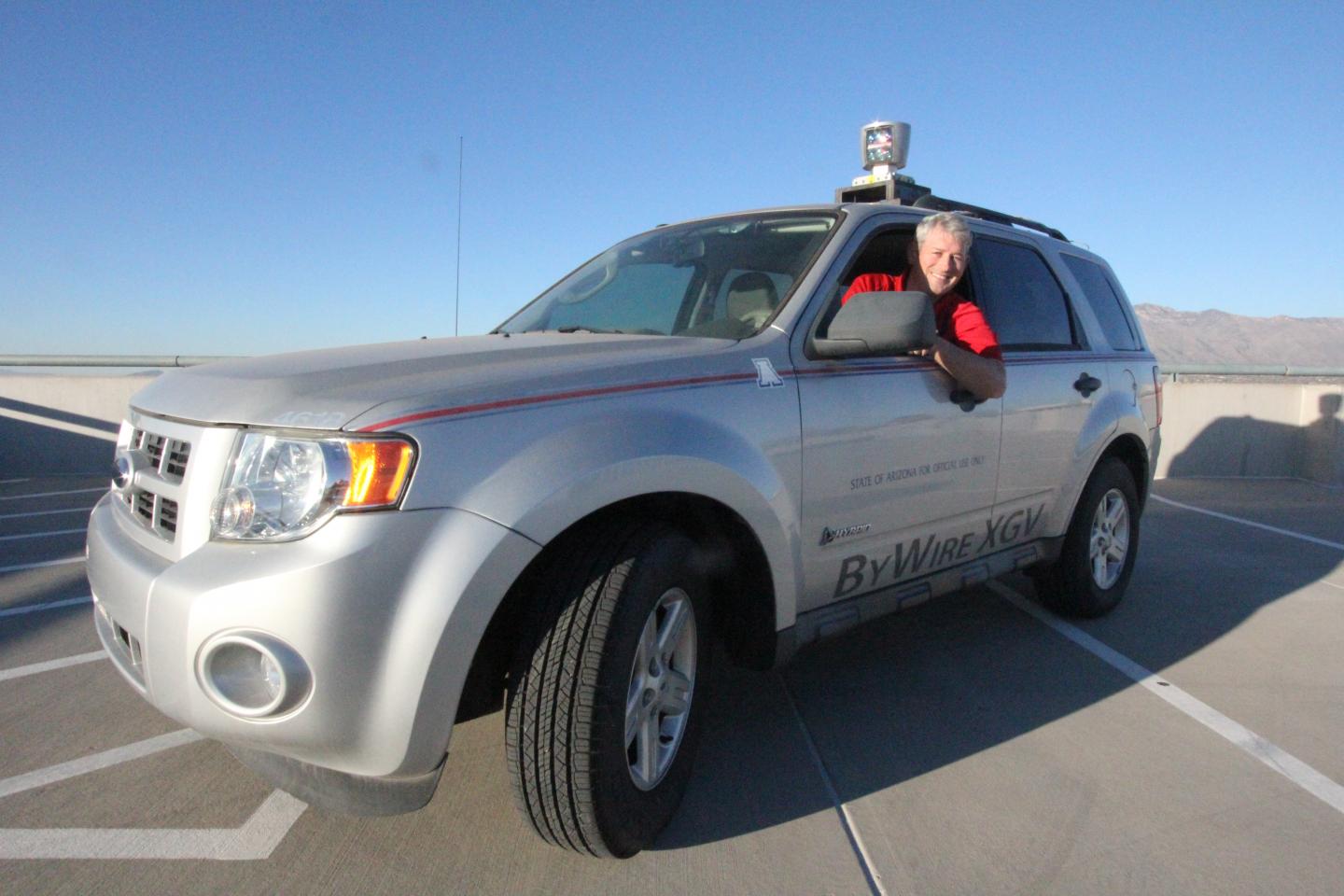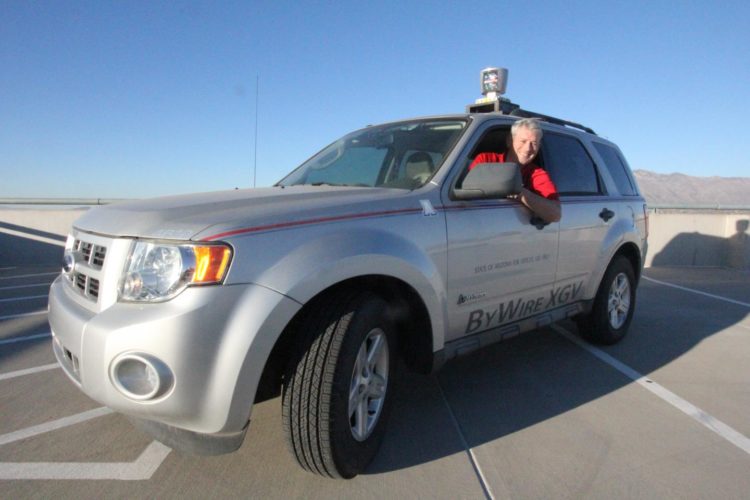Researchers at UC Berkeley and the University of Arizona, among other institutions, plan to move automated vehicles out of the lab and onto roadways for fuel savings.

Credit: UA College of Engineering
University of Arizona electrical and computer engineering researchers are collaborating on a multi-institution project that uses connected and autonomous vehicle technology to smooth traffic and decrease fuel consumption. The project, funded through a U.S. Department of Energy $3.5 million cooperative research agreement, aims to demonstrate for the first time in real traffic that using intelligent control of a small number of connected and automated vehicles can improve the energy efficiency of all vehicles in the flow by reducing the effects of congestion.
ECE’s Jonathan Sprinkle, Litton Industries John M. Leonis Distinguished Associate Professor, and professor Roman Lysecky are principal investigators for the University of Arizona’s $875,000 portion of the grant.
“More and more passenger vehicles come with features that automate some driving tasks,” said Sprinkle. “New advancements in machine learning are showing how small changes to those features can work to address societal-scale challenges, such as the amount of fuel spent while sitting in stop-and-go traffic during a daily commute.”
Alexandre Bayen, director of the Institute of Transportation Studies at the University of California, Berkeley, is leading the project.
“We are very excited to lead this project and contribute to relieving the negative impacts of congestion and dependence on fuel,” said Bayen.
The project is a continuation of the research team’s prior work, which introduced an autonomous car into a traffic circle to calm stop-and-go traffic waves, resulting in smoother flow and significantly reduced fuel consumption.
In previous field experiments funded by the National Science Foundation on a single-lane track, fuel consumption decreased up to 40%. With more complex traffic conditions, including vehicles with drivers, researchers estimate that automating fewer than 5% of vehicles in the traffic flow will result in a greater than 10% energy gain.
Also on the research team are Benedetto Piccoli, Lopez Chair Professor of mathematical sciences at Rutgers University, Camden; Benjamin Seibold, associate professor of mathematics at Temple University; Daniel Work, associate professor of civil and environmental engineering at Vanderbilt University; and Brad Freeze, director of traffic operations at the Tennessee Department of Transportation.
The project is part of $59 million the DOE Office of Energy Efficiency and Renewable Energy Vehicle Technologies Office has allocated for 43 projects involving research for advanced batteries and electric drive systems, co-optimized engine and fuel technologies, materials for more efficient powertrains, alternative fuels and energy-efficient mobility systems.
“Vehicles drive our national economy,” said DOE Under Secretary of Energy Mark W. Menezes. “At DOE, we support a broad portfolio of technologies, generating the knowledge needed for industry to further develop and commercialize affordable, secure and reliable transportation systems.”
In the United States alone, vehicles annually transport 11 billion tons of freight — more than $35 billion in goods each day — and move people more than 3 trillion vehicle-miles. The average U.S. household spends nearly a fifth of its total family expenditures on transportation, second only to housing.
###
Media Contact
Emily Dieckman
[email protected]
760-981-8808
Original Source
https:/





